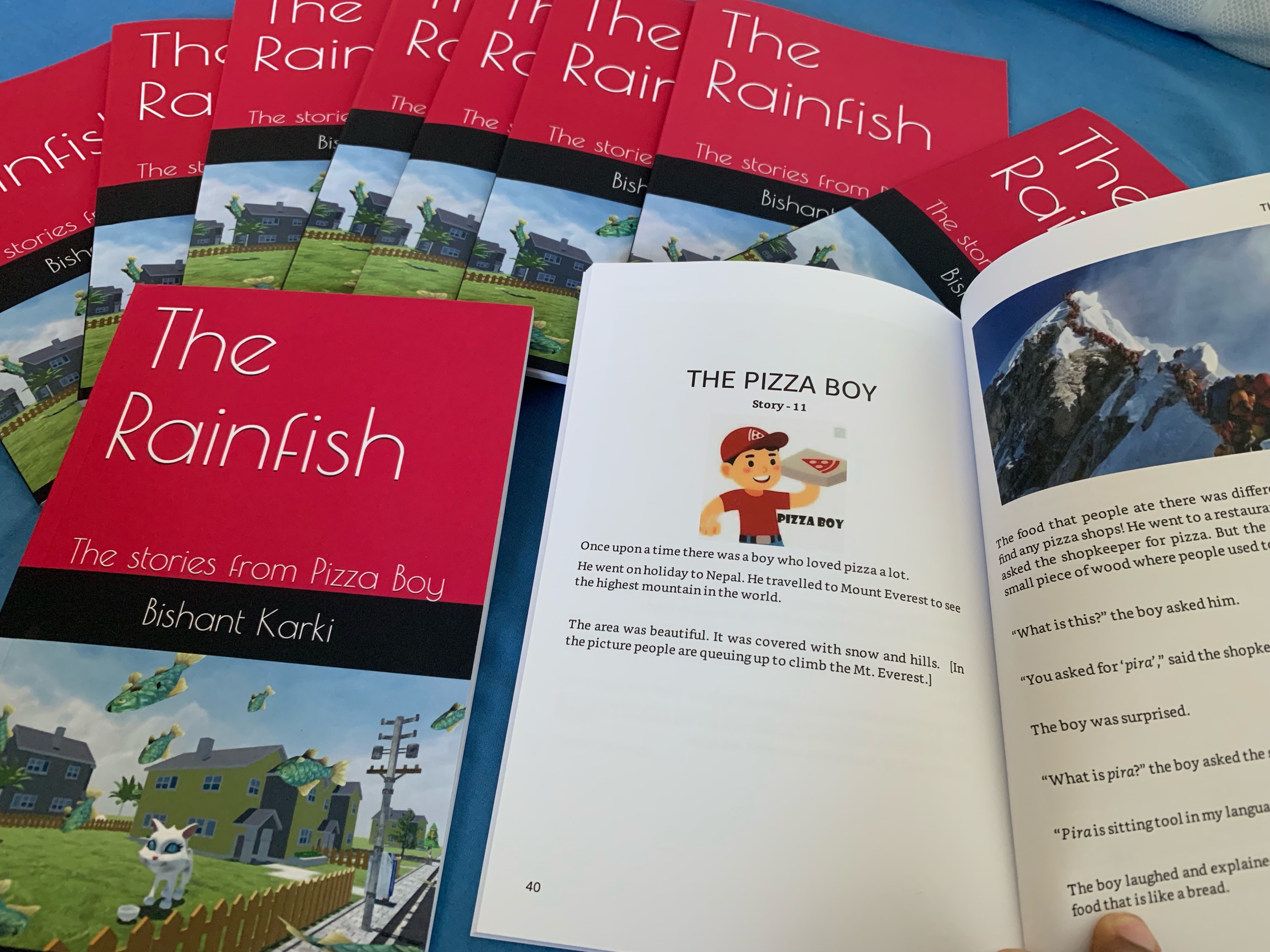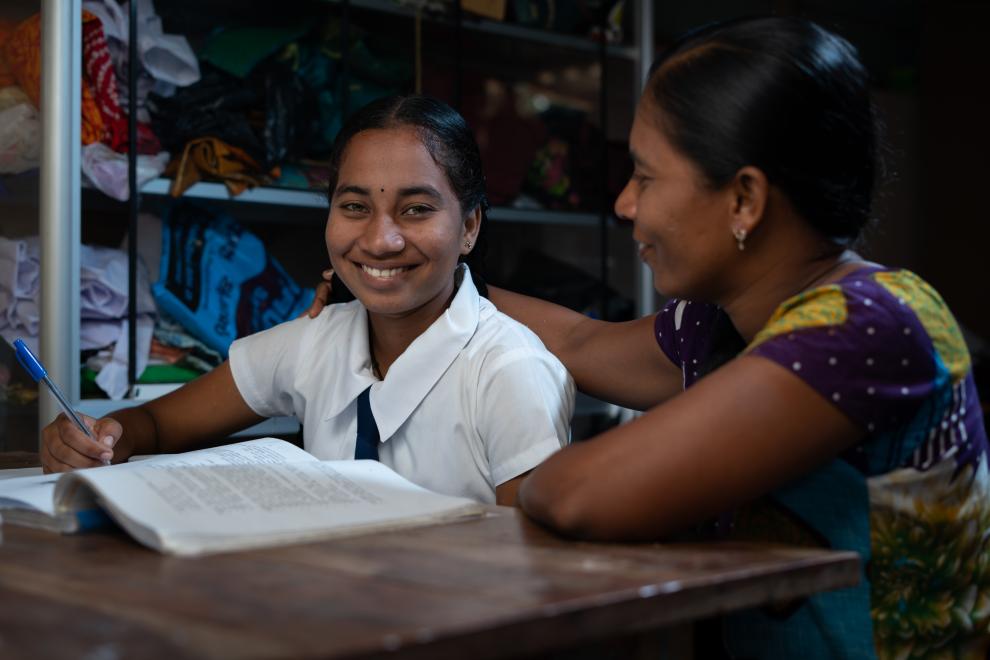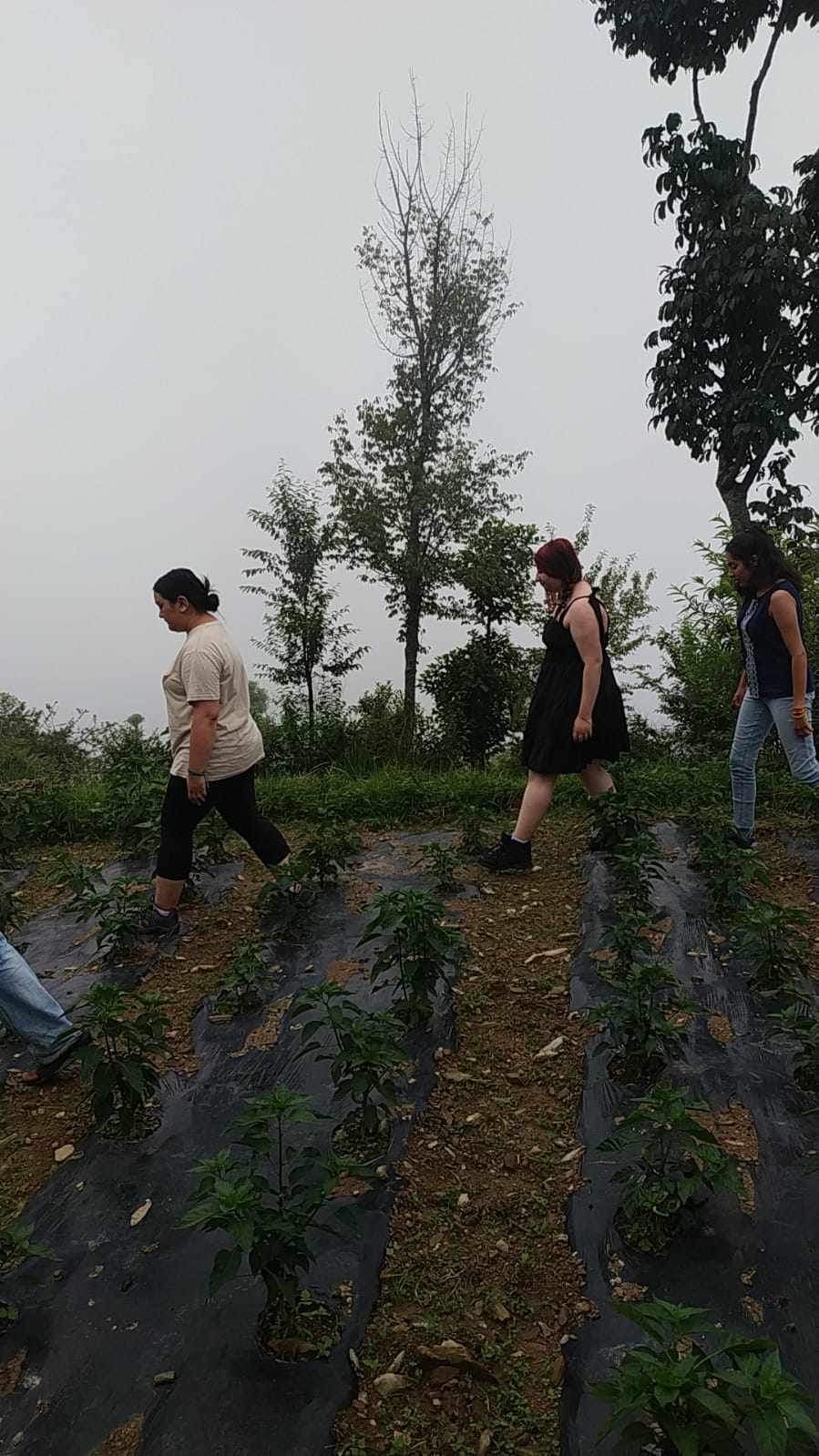Book Review by Swasti : “The Rain Fish” story book by the youngest Nepalese writer

 Book: The rain fish- The stories from the Pizza Boy
Book: The rain fish- The stories from the Pizza Boy
Author: Bishant Karki
The rain fish is a combination of stories arranged collectively, but each story
consists of an intriguing moral or fact. Which story do you want to choose?
As a whole, I have enjoyed "The rain fish" since I was able to encounter the
ideas and imagination of a seven-year-old; the stories give significant
perception into a child perspective. It is conspicuously distinguishing from a
teenager's aspect. In my opinion, I conclude that these stories can educate the
current generation to comprehend nature and merely not regard unfortunate
situations.
However, the stories would have been captivating if there was a component
that would fascinate older readers but also agree with the author's point.
Arguably, as a reader, I was not able to accept the argument advocating that
we put a limit to the number of minutes which we use electronics. Indeed, I
can apprehend that not many people interact socially with one and other, but
other factors are ascertaining this. These determinants can be understood
when young children start to be more conscious of various phases of the
world. Furthermore, 30 minutes of screen time rule applies to young children,
but this is not suitable for adults and teenagers. Over the years, teenagers and
adults will have assignments that will be relevant to their life and have a
perceptible influence on their purposes for the future. Consequently, there
should be an element to incorporate older readers so that it doesn't seem
tedious.
Although there is some room for improvement, I was profoundly mesmerised
by the quality of writing. It is unquestionably incredible to appreciate that such
a young author can generate such innovative concepts by himself. I regard the
story was especially striking in the area of conveying efficacious messages and
spreading this to educate children on how to perceive numerous
circumstances. My leading point is children will read compelling books such as
this. Optimistically, this will invigorate them to compose their fantasies.
Reading through this book will stop them from being apprehensive about
writing or narrating a story. Sometimes reading a simple story allows us to take
a step back and see the world from a distant viewpoint. We, young people, can
transform people's opinions and assert current issues and crises such as global
warming. Bishant's book has demonstrated this movement by publishing his
thoughts and being able to express this more productively. Overall, this could
make children, teenagers and even adults wonder how they can put their input
in doing something revolutionary.
Finally, I would like to say that I would recommend this book for children
around age seven, eight and nine. I believe that at this age, children are still
developing their knowledge even further, and the context is more relatable.
Here is a flavour the book holds: "I want people to be real people and to live in
the real world – not in the computer world. I want people to get more
knowledge from Mother Nature without using their phones.
More about Bishant :
Bishants does regular book review through his YouTube channel: https://www.youtube.com/channel/UCocbAfR1eKxmUTIOUqBY_wA?view_as=subscriber



















Facebook Comments